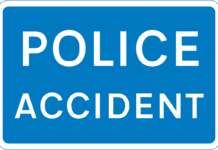Health Secretary Matt Hancock has faced a backlash after claiming Brexit helped the UK become the first country in the world to have a clinically authorised coronavirus vaccine.
The Pfizer/ BioNTech jab has been approved by Britain’s medicines regulator – but the European Medicines Agency (EMA) has yet to do the same for the EU.
Mr Hancock claimed European countries are “moving a little bit more slowly” and stressed the vaccine had gone through all the proper checks, but Germany has said it deliberately did not move too quickly to boost confidence it will work.
Within hours of the significant moment, political tensions were flaring.
Mr Hancock told Times Radio that “because of Brexit we’ve been able to make a decision to do this based on the UK regulator, a world-class regulator, and not go at the pace of the Europeans”.
“We do all the same safety checks and the same processes, but we have been able to speed up how they’re done because of Brexit,” he added.
And Business Secretary Alok Sharma also claimed: “In years to come, we will remember this moment as the day the UK led humanity’s charge against this disease.”
But the message riled a number of German politicians, including the country’s ambassador to the UK, Andreas Michaelis, who tweeted in response: “Why is it so difficult to recognize this important step forward as a great international effort and success?
“I really don’t think this is a national story. In spite of the German company BioNTech having made a crucial contribution this is European and transatlantic.”
And Germany’s health minister, Jens Spahn, said the UK had used an emergency process to authorise its vaccine use, while politicians there had decided against that strategy to boost confidence in the jab’s safety.
Peter Liese, a German MEP and member of Chancellor Angela Merkel’s governing CDU party, also said the EMA was avoiding approving the vaccine because a “careful review…will give people additional security”.
He added: “The information in the last few weeks was based mainly on press releases and much of the data has only been available to the authorities for a few hours.
“With such a large-scale vaccination campaign, you have to look carefully and carefully check the information provided by the companies.
“I have confidence in BioNTech, but they rightly say ‘trust is good, control is better’.
“Emergency approval is a tool normally intended for patients suffering from a serious and incurable disease for whom there is no other means of saving life or physical integrity. This is not the case with Corona.”
“A few weeks of thorough examination by the EMA is better than a hasty emergency marketing authorisation of a vaccine.”
Dr June Raine, chief executive of the Medicines and Healthcare Products Regulatory Agency, clarified on Wednesday that the vaccine’s approval was made using provisions under European law, which still binds the UK until the end of the year.
And at home the fury is just as great:
Let us know in the comments below:
‘Will you trust the government?
Tell us why/why not?
PLEASE SUPPORT US FOR JUST £2 A MONTH













No, I don’t trust the Government. I have lived long enough to remember some shocking approvals for example Thalidomide, Factor 8 plasma with HIV and Hepatitis C. Speed is not necessarily a good thing, surety is. The fact that it was done under “emergency ” procedures alarms me and when Tory politicians start making claims about how wonderful we are compared to the EU, the bells clang even louder! Particularly when a German company has been instrumental in bringing it about in conjunction with an American one and neither country has yet approved it. Are we to be the Guinea Pigs?
Never trust the Tories. End of :- This is more about the Toffs and Big-Pharma making a Killing-!
No definately not, especially when they have given themselves and Pfizer a get out of jail card, should anyone have serious adverse reactions to the vaccine!